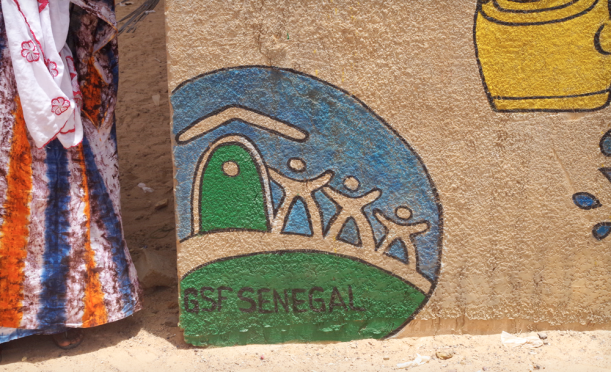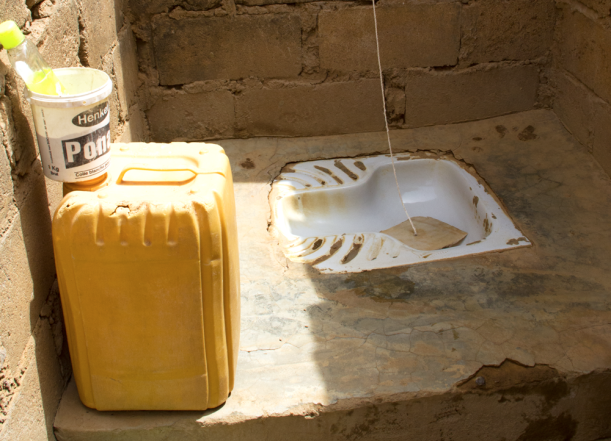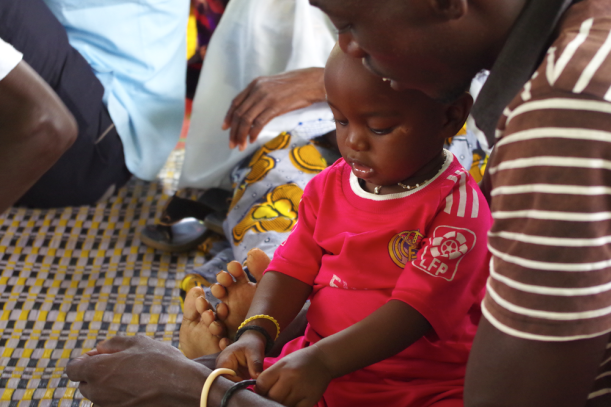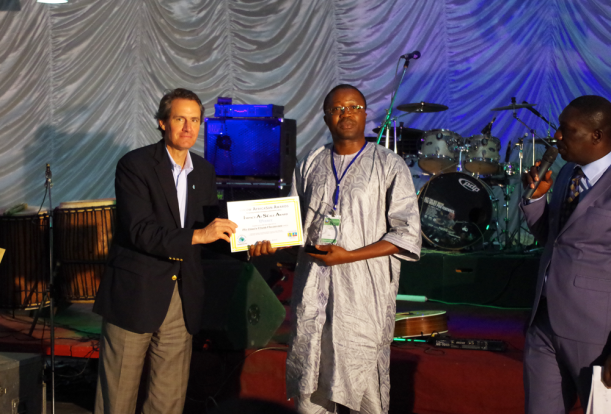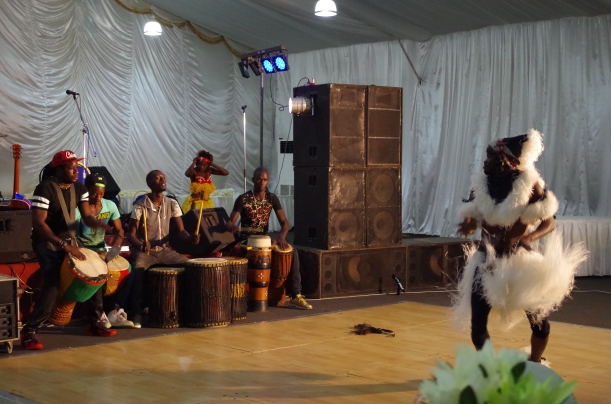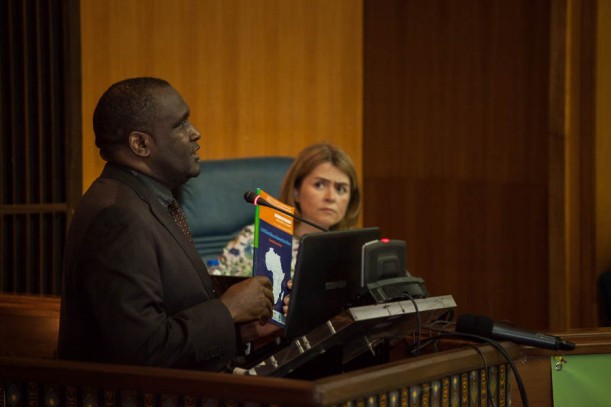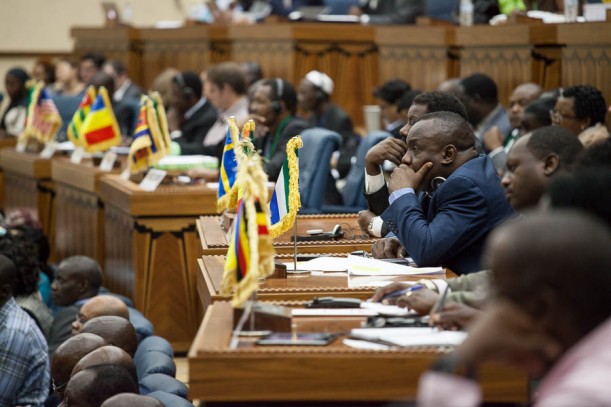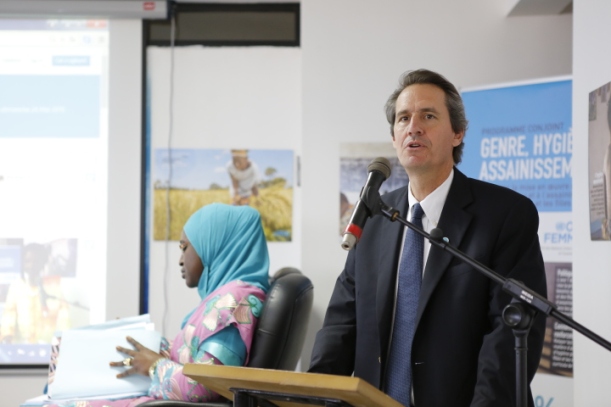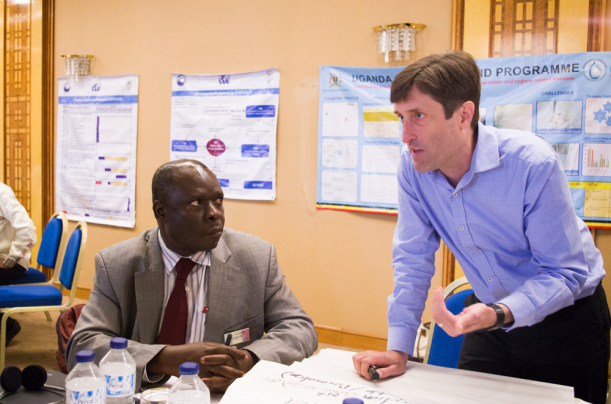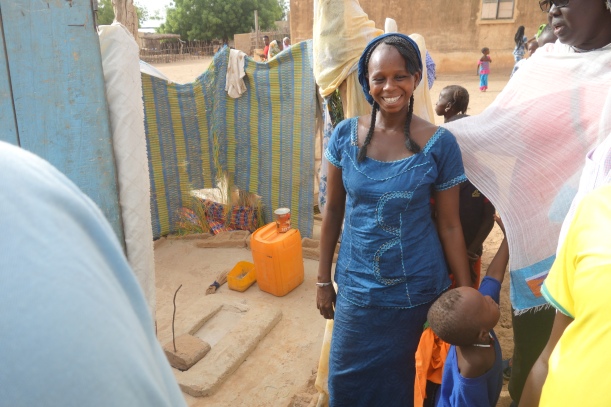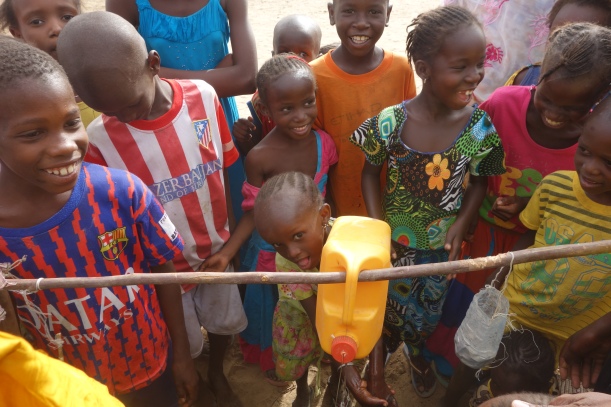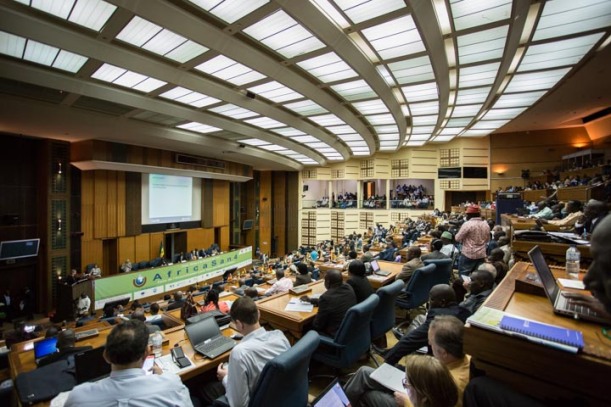By Jamie Myers, Research Officer at the CLTS Knowledge Hub
Last week in the run up to AfricaSan I joined a Global Sanitation Fund (GSF) field trip and learning event in the Matam region, Senegal. Along with GSF programme managers and Water Supply and Sanitation Collaborative Council (WSSCC) National Coordinators, we visited different villages where local NGOs have been triggering communities. Matam, in the north east of Senegal separated from Mauritania by the Senegal River, has a population of over 550,000 of which 98% are Muslim. In the region, 47.2% practice open defecation.
Following the field trip I also joined a sharing and learning event in Dakar where executing agencies presented the work they had been undertaking in their own countries.
Throughout the week there were a number of interesting points. The ones I found most interesting were use of religious leaders, support mechanisms for the most vulnerable and ways to change and sustain the hygienic management of child faeces. All three are discussed in more detail below.
Religion
As mentioned above, in Matam 98% of the population are Muslim. The sub-grantees in Senegal have made sure to not just gain the support from local Imams but make sure they play a central role in the intervention. Imams in some of the villages we visited are involved in post-triggering and post-open-defecation free (ODF) activities through their participation in village sanitation and hygiene communities. The use of religious leaders to promote sanitation and hygiene messages appears to have been very effective for collective behaviour change and hopefully the sustainability of ODF villages.
From country presentations in Dakar I learnt that a similar approach is being used in Togo and Nigeria where messages from the Koran and the Bible are used to promote hygienic messages.
In addition, it was also interesting to hear that in one village in Senegal a demonstration latrine had been set up at the mosque – a place frequented mostly by men who are often harder to convince about the benefits of stopping open defecation.
Improved latrine funding mechanism for the most vulnerable
In some communities solidarity funds have been set up. There is a registration fee along with a fee collected each month when members meet. The fund can be used for the construction of new toilets and maintenance of existing toilets for those who need it. In two villages we visited, the funds had been used to build four toilets for the most vulnerable households in the community. Over the whole project area 60 improved latrines have been built through these funds over the past two years.
I learnt that this idea had been taken from another non-sanitation related development programme that was already underway in the region. It shows that it is worth investing time into thinking more about successful programmes in different sectors and thinking about how community-led total sanitation (CLTS) and those working on sanitation and hygiene could borrow and adapt effective initiatives from others.
It is worth noting that the communities visited had the perfect environment for this kind of activity. They were very tightknit homogenous communities.
Child faeces committee members
Community members had been encouraged to set up village committees to monitor and support the transition from open defecation and the use of unimproved latrines to everyone using improved facilities. In one of these villages we found three members that were charged with looking after child health and hygiene. This included making sure that potties are used, emptied into latrines and then cleaned either with detergent or ash. It is of interest especially if it could help reinforce the message of needing to dispose of child faeces hygienically.
Learning from this example could really benefit the whole water, sanitation and hygiene sector. The Water and Sanitation Program’s (WSP) recent work on child faeces highlighted that in the 26 countries where data was collected, over 50% of households with children under the age of three were unsafely disposing of child faeces. Unsafe practices were also used by some with improved toilets and latrines (WSP, 2015).
Final thought:
I really hope I am given to opportunity to participate in more of these activities. It was a really enriching experience to join an international delegation all wanting to learn from what was happening in Senegal. It was excellent to see such successful interventions and see the huge strides that had been made in all communities we visited. In addition, being together also triggered conversations that would never have taken place. However, it is important to note we can learn as much from challenges and mistakes than we can from achievements. My advice for future trips would be to encourage more critical discussions and visit villages where work has been more challenging and successes have been fewer.
Future questions:
There were a few questions that I started to think about when on the field trip and whilst writing this blog that I think would be areas of future research that would be really beneficial:
- Can nominating a particular committee member to focus on children lead to the sustainable hygienic management of child faeces?
- Can we expect communities to support one another when there is little community cohesion? If not are smart, targeted support or subsides the only other alternative? What are other possibilities?
- How can we engage Hindu religious leaders in the fight against open defecation in India where the battle ground is largest?
- Are there other successful tools used in other sectors that could strengthen CLTS and other sanitation and hygiene interventions?
Reference:
WSP, 2015, Ensuring Safe Sanitation for Children, http://www.wsp.org/content/ensuring-safe-sanitation-children-0

